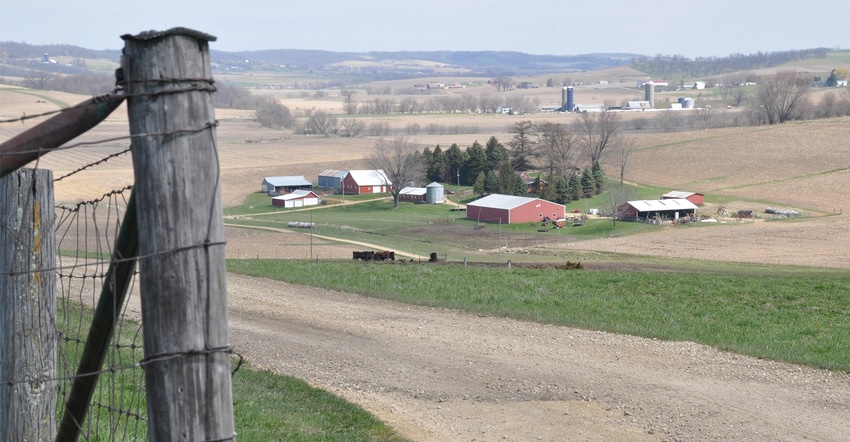March 21, 2018

What is the difference between estate planning and legacy planning? Some people would use the two interchangeably, but legacy planning tends to delve deeper into intangible issues.
If estate planning is about passing on your valuables, legacy planning would also emphasize your values. If estate planning is to transfer your wealth, then legacy planning would add your wisdom. If estate planning is giving someone your money and property, legacy planning might do so guided by your morals and priorities.
Are they really different? Legacy planning ought to be a thoughtful and comprehensive process of transferring your values with your valuables, your wisdom with your wealth, and your morals and priorities with your money and property. Legacy planning should, therefore, encompass estate planning. This is especially true with farm families.
The elder farmer has something he or she values very deeply. It is much more than a balance sheet of money, land and machinery. The farm is that person’s life. It represents hopes, fears and dreams. It was born of blood, sweat and tears. To the farmer, the farm is inseparable from family, past and future. The farm is infused with relationships, community and faith. The farm is freedom and fresh air, the opportunity to succeed or fail, a world in which we are dependent on God and not man.
The farm is something the farm family creates, grows and cares for. In an almost magical, even spiritual, way, as you care for it, it takes care of you, and it takes care of the people you love.
To the lifelong farmer, the possibility that the next generation might not appreciate and continue nurturing the farm is unthinkable. If the next generation doesn’t get this, frankly, many a farmer would feel like his or her life was a failure — like it didn’t count.
In this context, legacy planning is a serious undertaking. Almost sacred. So how does one approach it?
Writing it out
Legacy planning should motivate you to be very thoughtful, specific and visionary as you write your will or trust, but it will be much more than anything you can do with a will or trust. Legacy planning must be an ongoing process of intentionally communicating and demonstrating your values, wisdom, morals and priorities. It might include writing or recording stories, saving and identifying photographs, and planning particular activities and conversations for family gatherings. It will include specific steps you take to involve the younger generation in farm management.
In 2005, a large financial company conducted a very broad research project it called the Allianz American Legacies Study. Allianz surveyed thousands of people; about half each came from the World War II generation and the baby-boom generation — the oldest living generation and the generation that was starting to receive its inheritance in large numbers. A major purpose of the study was to determine what it really means to leave and receive a complete legacy.
While Allianz was not targeting farm families, its findings are useful. The following were identified as the four pillars of a complete legacy:
1. Values and life lessons represent a family’s ethics and morality, faith, and family traditions and stories. These are closely intertwined, and the stories tend to capture and communicate the others. Are you telling future generations the stories that defined who you are, where you come from, and why it matters in the big scheme of things?
2. Instructions and wishes to be fulfilled may address issues like your own life support or funeral arrangements, but in a farm legacy, these would extend to restrictions on the sale of the farm, stipulating leasing arrangements or otherwise protecting the opportunity of the farming heir.
3. Personal possessions of emotional value might seem insignificant, but when someone chooses to leave a particular keepsake to an heir and expresses specific reasons for doing so, that legacy-building act can transform an ordinary object into a cherished heirloom.
4. Financial assets and real estate are the most obvious part of the legacy. You want to pass these to the next generation with minimal taxes and hassle. If you don’t do a thorough job here, you are obviously dropping the ball.
One key conclusion of the study was that any legacy planning strategy that failed to address all four of these pillars would be incomplete. Yet many farmers’ estate plans address only the last one.
Will your family receive a complete legacy?
Ferguson owns The Estate Planning Center in Salem, Ill. Learn more at thefarmersestateplanningattorneys.com.
About the Author(s)
You May Also Like






